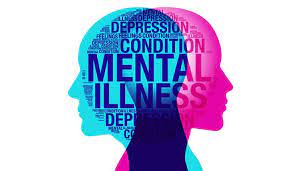Mental health is a vital aspect of overall well-being, and managing stress and anxiety is crucial for a balanced and fulfilling life. In today’s fast-paced world, it’s common to experience stress and anxiety, but with the right strategies, you can maintain emotional resilience and mental clarity. we will explore effective mental health tips and techniques to help you cope with stress and anxiety. Whether you’re looking to reduce daily pressures, navigate life’s challenges, or simply improve your mental well-being, these strategies can be valuable tools on your journey to a healthier mind.
Understanding Stress and Anxiety
Stress and anxiety are natural responses to challenging situations, but when they become chronic or overwhelming, they can take a toll on mental and physical health. Understanding the causes and symptoms of stress and anxiety is the first step in managing them effectively.
Mindfulness and Meditation
Practicing mindfulness and meditation can help you stay present and reduce anxious thoughts. Techniques like deep breathing, progressive muscle relaxation, and guided imagery can calm the mind and promote relaxation.
Healthy Lifestyle Choices
1. Regular Exercise: Physical activity releases endorphins, which act as natural mood lifters. Incorporate regular exercise into your routine to reduce stress and anxiety.
2. Balanced Diet: Proper nutrition plays a role in mental health. Consume a well-balanced diet with plenty of fruits, vegetables, whole grains, and lean proteins to support brain health.
3. Adequate Sleep: Quality sleep is essential for emotional well-being. Establish a consistent sleep schedule and create a relaxing bedtime routine.
4. Limiting Caffeine and Alcohol: Excessive caffeine and alcohol can exacerbate anxiety. Monitor your consumption and seek healthier alternatives.
Effective Stress Management
1. Time Management: Organize your tasks and prioritize your responsibilities to reduce feelings of overwhelm.
2. Problem Solving: Develop problem-solving skills to address the sources of stress and anxiety in your life proactively.
3. Set Realistic Goals: Avoid setting unrealistic expectations for yourself. Break tasks into smaller, manageable steps.
4. Social Support: Reach out to friends, family, or a therapist for emotional support and guidance.
Positive Lifestyle Habits
1. Limiting Screen Time: Reduce exposure to screens, especially before bedtime, to improve sleep quality.
2. Hobbies and Interests: Engage in activities you enjoy to relax and take your mind off stressors.
3. Mindful Breathing: Practice deep breathing exercises throughout the day to stay grounded and calm.
4. Gratitude Journaling: Write down things you’re grateful for daily to cultivate a positive mindset.
Seeking Professional Help
If stress and anxiety persist and significantly impact your daily life, consider seeking help from a mental health professional. Therapy and counseling can provide valuable tools and support in managing these challenges.
Prioritizing mental health is essential for a balanced and fulfilling life. By implementing these strategies for managing stress and anxiety, you can enhance your emotional resilience, improve your overall well-being, and create a stronger foundation for a healthier mind and life. Remember that seeking help when needed is a sign of strength and self-care.
